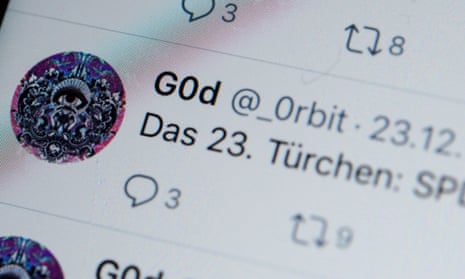The discovery of a comprehensive hack of private documents from German politicians, artists and journalists might once have been the subject of considerable outrage. Indeed, Angela Merkel’s spokesman described the attack as “very very serious” and it was not just the newspaper that first published the story which got excited. But if this was an attack on democracy, it was a remarkably indirect one. That does not make it less dangerous, but the danger is subtle and pervasive.
Most of the really spectacular breaches of email security in the last eight years have taken place in a profoundly political context, where actors, good or bad, stood ready from the beginning to edit and analyse the raw data before it could be presented. The facts were always displayed within a frame. This did not just apply to politicians. It was true even of the “climategate” hack of emails between climate change researchers. When the affairs of Mossack Fonseca were exposed in the Panama Papers, this also had a clear agenda – to reveal and discourage tax evasion.
The German hack, however, looks not so much amateurish as anarchistic and pointless. The perpetrators remain unknown, although there is some evidence that they were part of a disorganised far-right culture that flourishes in the fetid crannies of the internet. The leak was not coordinated with any particular media campaign: the files were leaked in dribbles all through December on a Twitter account that nobody noticed. It had fewer than 20,000 followers and none of them, it seems, were reading it with attention or interest, even assuming that any were human and not bots. Only when a much more popular account was briefly hijacked and used to point at the hacked files did the story begin to leak out.
There is a naivety behind the belief that anything once secret becomes interesting when put on the internet which no amount of experience can dispel. This naivety was also what enabled the ludicrous storm about Hillary Clinton’s email server: the assumption that there could be no legitimate reason for her to keep anything from the public was one of the factors that cost her the election.
It is this attitude, more than the hacks themselves, which makes these attacks dangerous to democracy. Although there is an ineradicable journalistic instinct, shared with the rest of the human race, to discover facts which other people would rather have kept hidden, this urge cannot go unchallenged. There is a legitimate sphere of privacy without which no organisation, and in fact no normal person, can function at all. This is true even of the professional exhibitionists who appear on reality television. Some of the most nourishing and grounding human experiences derive their quality from the fact that they are not shared.
Society worries quite rightly a great deal about the effect on privacy of state surveillance. We worry also, again rightly, about the effect of directed cyber-attacks against government, industries and politicians. But not all crime is major, and not all minor crime is harmless to its victims. The prankish, anarchistic mentality that seems to lie behind the German hacks may be closer to vandalism than to violent assault, but it must still be shocking and distressing to the victims. People who have been burgled will often report that the loss of privacy, and the sense of violation, is far more distressing than the loss of whatever physical things were stolen.
When politicians are considered fair game for this kind of attack, in which the daily undramatic details of their domestic lives are hung out for passersby to gawk at, the likeliest response is that fewer ordinary, decent people will wish to go into politics. Who can blame them? There are exceptions to this rule, who are able to withstand unnerving levels of pressure, like the American Democratic politician Alexandria Ocasio-Cortez, who has laughed off the exhumation of a high school video of her dancing with friends. But democracy cannot depend on exceptional talents like hers. It needs ordinary people, too, who can be embarrassed and need sometimes to be protected from embarrassment.
